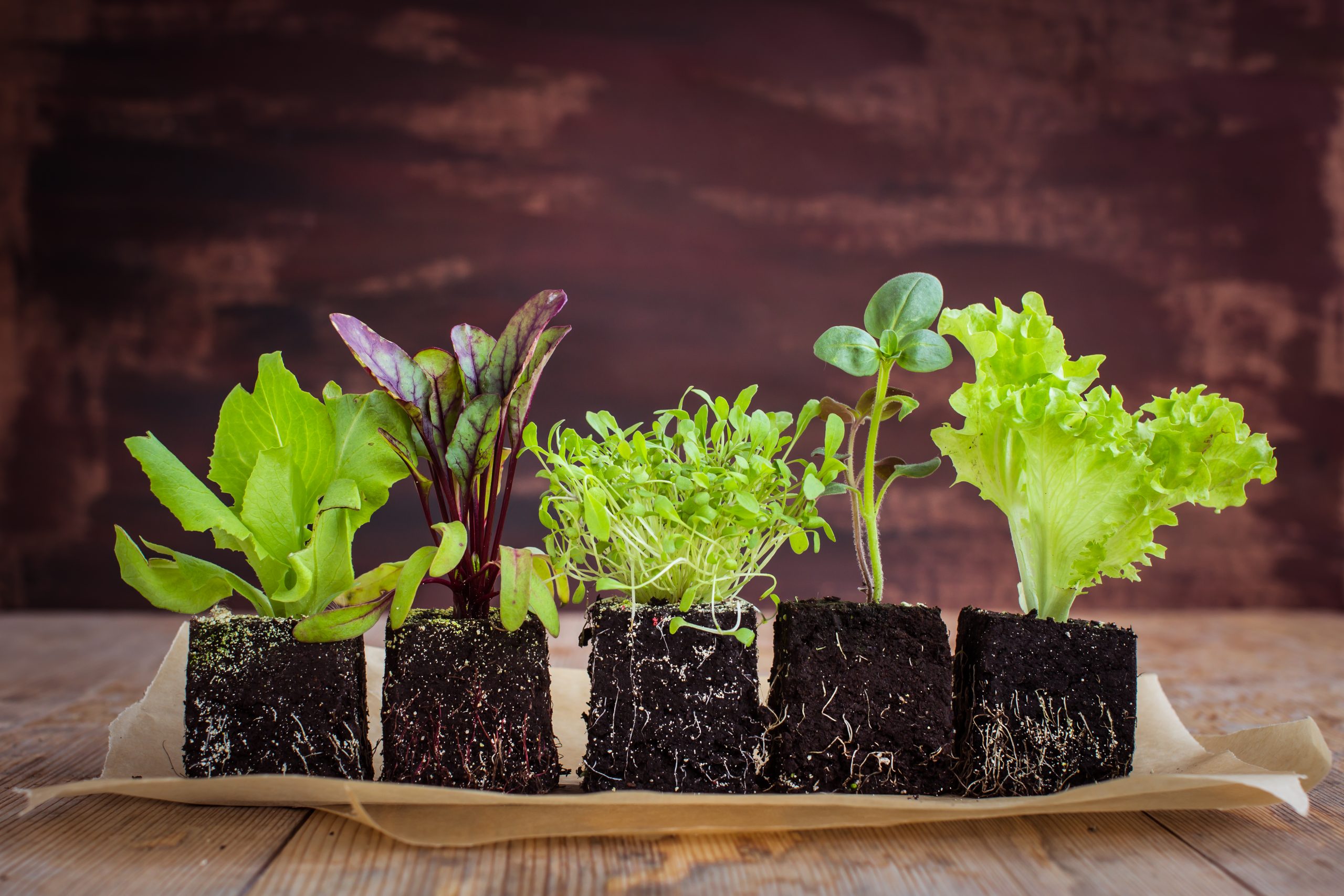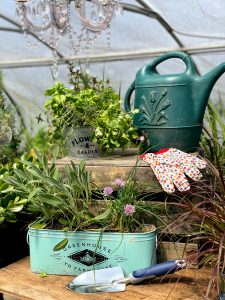Digging in, A Spring Planting Guide
Digging in, A Spring Planting Guide
It’s that time when frost warnings are ending in our growing area which means it’s time to get out and into the garden. We’ve prepared a beginners guide to help you easily get started. If you haven’t planted seeds or seedlings from scratch, not to worry, we have a wide variety of veggie, herb &… Read More »
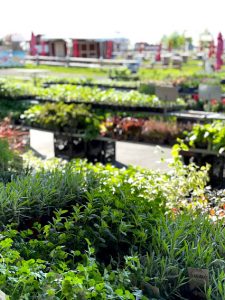
If you haven’t planted seeds or seedlings from scratch, not to worry, we have a wide variety of veggie, herb & fruit transplants available to help you jump start this year’s garden. Choose from Cole crops, lettuces, herbs, and vegetable plants. We also carry rhubarb plants, strawberry pots and fruit brambles.
Have you started veggie transplants from seed this year? If so, good for you! Remember, you will need to acclimate them to outdoor temperatures before planting them in pots or in garden beds. This process is called “hardening off” and gives the tender seedlings gradual exposure to outdoor elements thereby toughening them up by thickening the cuticle on the leaves so they lose less water when exposed to the elements. Hardening seedlings helps prevent transplant shock from sudden changes to sunlight and temperatures and helps ensure a smooth transition into the garden.
How to Get Started
The first step is to consider how much attention you want to allocate to your garden. The bigger the garden bed the more attention it will need, conversely for container gardening, the larger the pot the more space and the easier it is to care. You will find that more watering is required for smaller pots and therefore more care. Decide what is best for you and choose your location making sure it is a sunny spot with at least 6-8 hours of sunlight.
Prepare the soil by raking out dead vegetation in your garden bed. Make sure to clear out weeds, debris and rocks. You will want to loosen up the soil and add organic matter such as compost to improve the soil quality. If planting in pots or window boxes, make sure to rake and loosen the soil while adding a garden soil mixture with vermiculite. We have a wonderful resource here in NJ that is the Rutgers Cooperative Extension. You may have your soil tested, if desired, before planting your garden to ensure proper nutrients for your plants. Visit https://njaes.rutgers.edu/soil-testing-lab/resources.php
Choosing plants for your garden
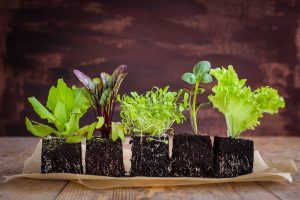
Get to know the types of plants before beginning; annuals, biennials and perennials. Annuals go through their life cycle in one growing season, biennials take two years to complete the cycle and perennials come back year after year. Choosing a few of each will add variety and ensure you have something to look forward to next year.
Annual Herbs = dill, basil, cilantro, marjoram
Biennial Herbs = parsley, sage
Perennial Herbs = oregano, thyme, sage, chives, mint, lavender, rosemary, tarragon & fennel.
All of these herbs are available here in our farm store, right now. CSA members are receiving these herbs in the beginning weeks of their weekly boxes. If you desire to receive a weekly box of freshly picked fruits & veggies, there is still time to enroll.
Herbs are a great beginning gardener’s dream. They are easy to grow, hearty and not only are edible, they also can deter pests around your home. Not only can you use herbs for cooking, garnish and decorating your plate, you can also snip fresh herbs as bouquets to add color and fragrance indoors. If you prepare an herb bouquet remember to change the water daily to keep it fresh for about a week. Some of your herbs may even root themselves as an added bonus and you can reuse them in the garden or give them as gifts.
If you like to cook, you will love to have fresh herbs on hand. Choose herbs or veggies that are transplant sized and ready to be planted outdoors, all of the varieties we have for sale on the farm are ready to plant now except basil (prefers temps above 50 degrees). Herbs are great fresh or dried and allow you to savor the flavors long after your garden season.
Digging In
Now that you have decided on the location for your garden (bed, pots or window boxes) along with choosing the types of plants you will grow, you are now ready to dig into your project. Prepare a hole twice the size of the root ball that you are planting and gently place in the hole. Make sure to slightly loosen the tightly packed root ball of your transplant once removing it from the pot before replanting. Loosening the root ball helps stimulate growth and helps with nutrient absorption.
When planting make sure to allow room for plant growth and spreading. You can refer to and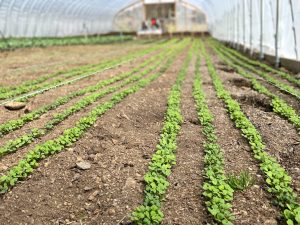
Maintenance and Care
Periodically check the health of your plants and remove any diseased or dead vegetation. Remember to water properly and don’t overwater your plants, let the soil dry out before watering to prevent disease and mold. Minor maintenance of weeding and fertilizing once per month may be required and is helpful to your plants. Also remember to pinch back flowering plants and herbs so not to go to seed. Pinching back also helps to reduce legginess in plants which could stress them, reduce yield and prevent healthy growing. Protect your garden from animal pests by adding fencing or other natural pest deterrents. Did you know? Some flowers and herbs are natural pest deterrents and may keep small animals and insects at bay including; mint, rosemary, lavender, lemon thyme, sage, marigold and lemongrass. Larger plants may require staking which can easily be done with found objects at home. You may want to introduce beneficial insects into your garden by growing companion plants that attract these beneficial insects. Save the seeds from this years garden to start indoors for next year!
You now are equipped with the knowledge needed to start a basic garden at home. Our farm team is always nearby to help guide you and provide feedback and advice as you venture into the rewarding world of growing a garden. Stop into our farm store, or one of our farm stands to shop our wide range of transplants and to find your inspiration today!
Best wishes from our farm to yours!

